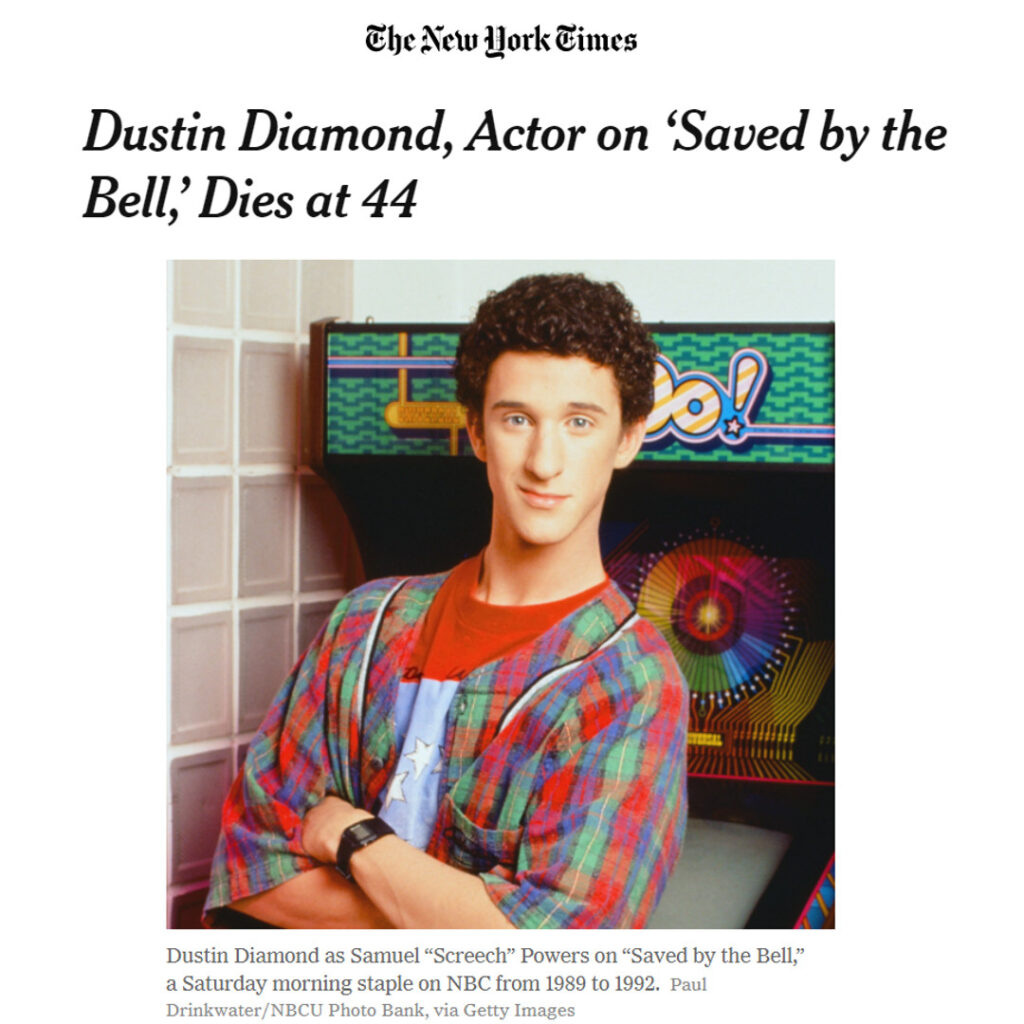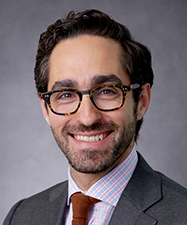
Screenshot from the New York Times. Original caption reads: Dustin Diamond as Samuel “Screech” Powers on “Saved by the Bell,” a Saturday morning staple on NBC from 1989 to 1992.Credit…Paul Drinkwater/NBCU Photo Bank, via Getty Images.
It is with sadness that we learn about the untimely passing of actor Dustin Diamond at the young age of 44 from stage 4 lung cancer. Mr. Diamond, who we commonly remember from the popular sitcom Saved by the Bell, was a talented comedic presence whose impact on television is nearly inseparable from his uplifting character Screech we watched and laughed with in the early 1990s. This loss highlights the fragility of life at all ages, especially from cancers diagnosed at an advanced stage.
Lung cancer remains the most commonly diagnosed, and most lethal cancer, in the United States with greater than 220,000 cases diagnosed in 2020. Stage 4 lung cancer, the diagnosis Mr. Diamond reportedly received just weeks ago, is the most advanced stage of lung cancer.
In stage 4, the cancer has spread (metastasized) to both lungs, the area around the lungs, and/or distant organs. According to the National Cancer Institute, 57% of lung cancer is diagnosed at this late stage. When cancer reaches this stage it cannot be cured, but in some cases the patient’s life can be prolonged and quality of life can be improved.
Lung cancer, like pancreatic, ovarian, and some other cancers, is often diagnosed after it has spread. Symptoms of lung cancer usually do not appear until the disease is already at an advanced stage. Even when lung cancer does cause symptoms, many people may mistake them for other problems, such as an infection or long-term effects from smoking. This may delay the diagnosis.
Since the start of COVID-19 doctors are seeing fewer lung cancer diagnoses because people who are at high risk for lung cancer are putting off their screening tests and some are putting off preventive health services during the pandemic – both of which may ultimately lead to a diagnosis of more advanced lung cancer.
While many stage 4 lung cancers cannot be cured, cancer experts do have treatments that in some cases may extend a patient’s life and improve their quality of life. The multidisciplinary group of physicians, nurses, and supportive care professionals who make up the MD Anderson Cancer Center at Cooper Lung Cancer Center provide novel and powerful treatment options including advanced chemo- and immune-therapies, safe and effective radiation treatment, and even surgery for certain stage 4 lung cancers. We use minimally invasive techniques such as robotics to aid in complex diagnoses, and offer minimally invasive surgery options to our patients.
For patients diagnosed with early stage lung cancer, cure is possible and attainable. In the U.S. 5-year survival rates continue to climb each year thanks in large part to better access and promotion of lung cancer screening and early detection of lung cancers.
I urge everyone to listen to your body and contact your physician if you are experiencing symptoms such as cough (often with blood), chest pain, wheezing, or weight loss.
If you are at high risk for lung cancer (55 to 80 years old and have a history of smoking a pack of cigarettes a day for 30 years or two packs a day for 15 years) please talk to your doctor about a lung cancer screening. It is painless, requires no preparation, and is covered by most insurance companies. And if you don’t have insurance, we may be able to help with free screening services.
Dustin Diamond passed away too early from his advanced disease. We will remember his timeless portrayal of his loveable high school character, but we will also continue to fight in his memory as we dedicate all of our groundbreaking MD Anderson at Cooper resources and expertise to patients young and old diagnosed with these difficult lung cancers.
David D. Shersher, MD, is Co-Director, Aerodigestive Program and a Thoracic, Lung and Esophageal Surgeon with MD Anderson Cancer Center at Cooper.


My mother was diagnosed with small cell carcinoma at the age of 73. She had stopped smoking 13 years before her diagnoses.
I remember her saying” It was so easy to quit”; it was too late.
This May 19th will be 8 years of her passing..
She was a nurse…She helped so many…
How can we educate people Better?